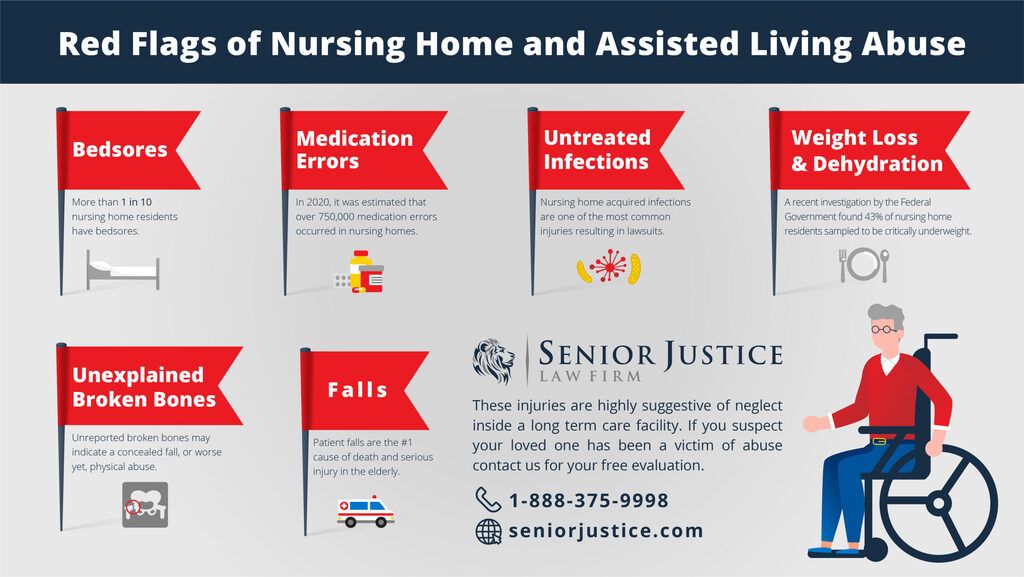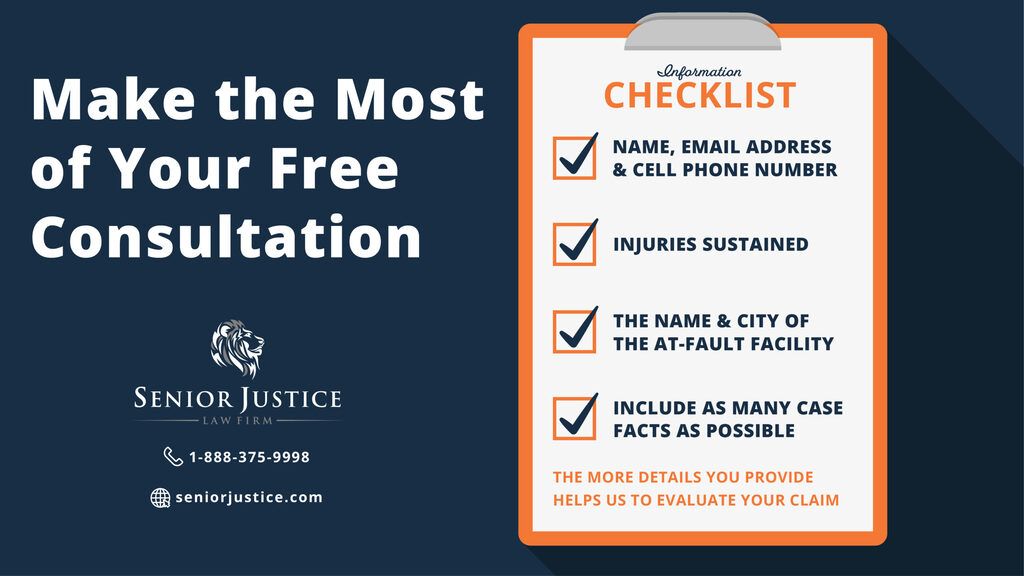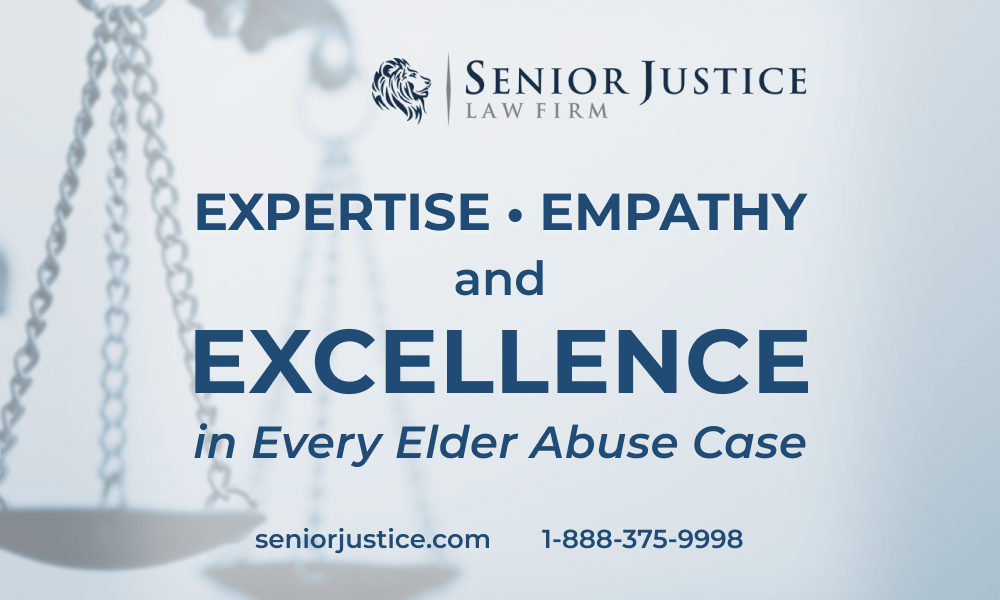Accountability and Legal Considerations: Understanding Nursing Home Responsibilities in Case of Harm
Introduction
Dealing with the loss or harm of a loved one in a nursing home is an emotionally devastating experience. While the focus should primarily be on coping with the situation, questions may arise regarding the legal responsibility of the nursing home in causing the harm.
Our nursing home abuse attorneys explore the legal and ethical aspects surrounding incidents of harm in nursing homes and discuss how to hold a nursing home accountable by raising a civil claim. This is commonly referred to as a nursing home negligence case.
What is a Nursing Home’s Duty of Care to Residents?
Nursing homes have a legal duty to provide a certain standard of care to their residents. This duty includes protecting residents from harm and ensuring their safety and well-being. In real person speak, this means a nursing home must keep its residents safe and injury-free.
When a nursing home fails to meet this duty, and harm occurs as a result, they may be held legally responsible for their negligence or misconduct. Legal claims such as wrongful death, negligence, or medical malpractice can be pursued to seek accountability.
Investigations and Reporting

In the event of harm or death in a nursing home, it is crucial to promptly report the incident to the appropriate authorities, such as the state’s Department of Health or Adult Protective Services. These agencies have the responsibility to investigate complaints and ensure regulatory compliance.
Reporting incidents helps uncover potential neglect or abuse, ensuring the safety of other residents.
Here is a detailed breakdown by state on how to report nursing home abuse in your area.
Accountability and Compensation for Nursing Home Neglect Injuries
Families who have experienced harm or the loss of a loved one due to nursing home negligence may seek legal recourse. Engaging an attorney experienced in elder abuse law and nursing home litigation can help evaluate the case’s merits and pursue appropriate legal action.
Compensation may be sought for damages, medical expenses, pain and suffering, emotional distress, and other losses resulting from the incident.
In nursing home injury cases not resulting in death, families can recover money damages for the pain and suffering of their loved one. In nursing home wrongful death claims, survivors can seek compensation and money damages for the wrongful death of their family member.
Common Nursing Home Injuries Resulting in Litigation

Oftentimes, family members suspect something is wrong, but do not know what to look for. Below are some of the more common nursing home injuries that result in families hiring Senior Justice Law Firm to make a nursing home negligence claim.
- Pressure Sores or Bed Sores
- Falls Resulting in Broken Bones
- Brain Bleeds
- Unexplained Broken Bones
- Significant Weight Loss
- Sepsis
- Amputation
- Choking Death
- Medication Mistakes
- Patients Wandering out of the Facility
- Sexual Assault & Abuse
- Physical Attacks
- Wheelchair Transfer Injuries
- Pneumonia
- Aspiration Pneumonia
- Infections
- Urinary Tract Infections
- Wrongful Death
Contractual Obligations, Payment, and Arbitration Agreements
The financial obligations between the family and the nursing home are typically governed by a contractual agreement. However, in cases where harm or death occurs due to the nursing home’s negligence or misconduct, it may be possible to challenge the contractual obligations.
Legal action can be pursued to argue that the nursing home’s failure to provide adequate care or ensure the safety of residents releases the family from their financial responsibilities.
Many families are concerned that they signed a nursing home arbitration agreement that bars them from filing suit against the facility. However, arbitration agreements are often unenforceable. Even if enforced, an arbitration does not prohibit your family from seeking justice. You can still file a nursing home injury claim.
How Nursing Homes Defend Against Negligence Lawsuits
Nursing homes may attempt to dispute or defend claims brought against them. They might argue that they fulfilled their duty of care or that the harm was not a direct result of their actions or negligence.
The facility will rarely blame the victim, as they usually suffer from dementia or cognitive impairment. More commonly, the nursing home attorney will argue that the injury is a result of a preexisting condition, and not negligence.
Engaging legal representation can help navigate these disputes and build a strong case by gathering evidence, including medical records, witness testimonies, and expert opinions.
Seek Legal Advice from an Experienced Nursing Home Litigation Attorney
Given the complexity of these legal matters, it is important to consult with an attorney experienced in nursing home negligence litigation.
Most states have nursing home specific statutes that do not apply to personal injury or medical malpractice. This makes nursing home litigation its own nuanced legal field. It is crucial to find counsel that specializes in this narrow sub-practice area.
At Senior Justice Law Firm, nursing home abuse and neglect claims are the focus of our law firm. This is all that we do.
Conclusion
In cases where harm or loss occurs in a nursing home due to negligence or misconduct, families may pursue legal action to hold the facility accountable. The payment obligations towards the nursing home may be challenged, as the nursing home’s failure to provide adequate care and ensure resident safety can release the family from financial responsibilities. Consulting with an attorney experienced in elder abuse law is crucial to understand the legal options available, navigate the legal process, and seek justice for the harm or loss experienced by your family member in a nursing home.
Free Lawyer Consultation

For a free nursing home negligence or nursing home wrongful death case consultation, speak with the compassionate, experienced, and specialized nursing home abuse attorneys at Senior Justice Law Firm.
Our law firm works on contingency fee. This means we never require an out of pocket payment from you, ever. If we accept your case, we advance all costs associated with the case and do not bill for our time. Instead, we accept 33.3 to 40% of the total settlement or judgment as payment for our attorneys fees.
Call us today for a free case consultation: 888-375-9998.



